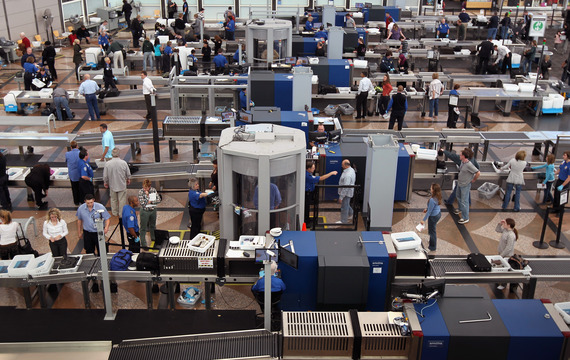 Nearly everyone remembers where they were on Sept. 11, 2001. But do you remember where you were on September 10? More specifically, do you remember what life was like before those horrendous terrorist attacks 13 years ago, which exposed such deep vulnerabilities in our nation's security? The September 11 attacks claimed the lives of nearly 3,000 men, women, and children -- including 69 federal employees. As America prepares to mark another year since the 9/11 attacks, it's important to recognize the federal employees who have answered the call of duty to prevent another attack on U.S. soil. The most visible change is at our airports, where a trained workforce of more than 45,000 federal employees screens all commercial airline passengers, baggage and cargo. Prior to 9/11, screening was handled by a hodgepodge of private-sector security firms. In creating the Transportation Security Administration, Congress transferred this responsibility to the federal government to ensure that the screening process is performed by trained professionals who are accountable to taxpayers -- not profiteers.
Nearly everyone remembers where they were on Sept. 11, 2001. But do you remember where you were on September 10? More specifically, do you remember what life was like before those horrendous terrorist attacks 13 years ago, which exposed such deep vulnerabilities in our nation's security? The September 11 attacks claimed the lives of nearly 3,000 men, women, and children -- including 69 federal employees. As America prepares to mark another year since the 9/11 attacks, it's important to recognize the federal employees who have answered the call of duty to prevent another attack on U.S. soil. The most visible change is at our airports, where a trained workforce of more than 45,000 federal employees screens all commercial airline passengers, baggage and cargo. Prior to 9/11, screening was handled by a hodgepodge of private-sector security firms. In creating the Transportation Security Administration, Congress transferred this responsibility to the federal government to ensure that the screening process is performed by trained professionals who are accountable to taxpayers -- not profiteers.
TSA's track record speaks for itself. Not a single large airport has opted to privatize in the agency's 13-year history. And there has not been a single successful terrorist attack in the transportation sector since TSA took responsibility for security. But facts, inconvenient as they are, will not get in the way of the privatization lobby and their front men in Congress who advocate a wholesale return to pre-9/11 security. Sept. 11 changed the game and it's high time their self-serving political gamesmanship changed with it. Security at our borders and along our coastlines also has been enhanced thanks to the creation of the Department of Homeland Security (DHS) in November 2002. DHS consolidated 22 government agencies with the stated goal of having one department responsible for preparing for, preventing, and responding to domestic emergencies, including acts of terrorism. The U.S. Border Patrol expanded its mission beyond combating drug and human trafficking to include preventing terrorists and illegal arms from entering the country, while continuing to manage legal and illegal entry into the country. The U.S. Immigration and Customs Enforcement consolidated the investigative and intelligence functions of several agencies, helping to close gaps that were exposed after 9/11.
FEMA was folded into Homeland Security to improve our preparedness and response to disasters both natural and manmade, while the Coast Guard was transferred to DHS from the Department of Transportation for much the same reason.
Even federal employees outside of DHS have seen their missions evolve in the wake of 9/11, especially law enforcement agencies like the Justice Department and intelligence agencies like the CIA. Though you may not see these dedicated public servants every day, they are constantly on watch; constantly looking around the corner to stop the next terrorist attack before it starts. While pundits will no doubt continue to debate whether we have done too much in the name of national security or not gone far enough, this much is clear: there has been no successful terrorist attack on U.S. soil since 9/11. For that, we have thousands of federal employees to thank.
J. David Cox Sr. is national president of the American Federation of Government Employees, which represents more than 670,000 federal and D.C. government employees nationwide